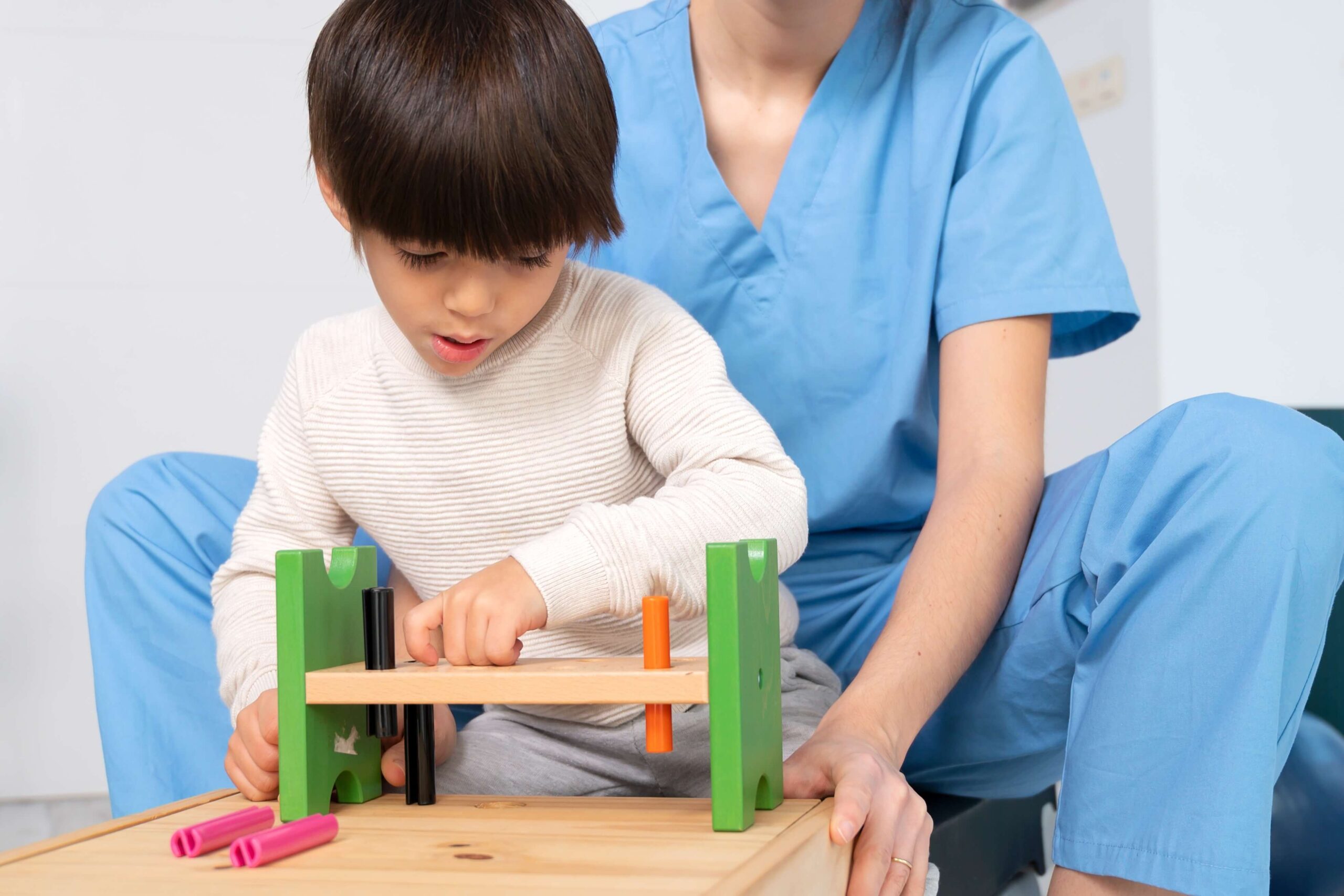When your child doesn’t reach milestones like other children their age, you might feel anxious, confused, and even scared. You may ask yourself, “Why isn’t my baby crawling yet?” or “Should my toddler be talking more?” Such thoughts may consume your mind.
Between staying up all night worrying and spending hours searching for answers online or from well-meaning friends and family members, it’s a lot to deal with. Plus, the answers and ideas you get are often confusing or contradictory, leaving you feeling more overwhelmed than informed.
It’s easy to feel lost, upset, or unsure of what to do next. You may worry whether you’re missing something important, or wonder if it’s your fault. In this confusing and potentially scary time, it’s crucial to know that you and your child are not alone. Help is available.
Recognizing potential developmental delays in children isn’t about placing blame or rushing to conclusions. It’s about listening to your instincts and seeking understanding. With the right support, you can take steady, informed steps that help your child grow, connect, and thrive at their own pace with care that meets them where they are.
What Are Developmental Delays?
Developmental delays occur when children do not reach certain milestones at the expected times. Every child grows at their own pace, but progress in key areas significantly behind that of peers may be a sign that additional support is needed.
These areas of development include speech and language, motor skills, cognitive abilities, and social-emotional growth. Identifying and addressing these delays early allows families and care providers to create a plan that supports a child’s unique strengths and needs.
For example, a toddler who struggles to form words may benefit from early intervention speech therapy, while a child with difficulty sitting up, crawling, or walking might need physical therapy for children. Challenges with play, attention, or following routines could suggest a need for occupational therapy for toddlers.
Common Signs to Look For (By Age Range)
Recognizing developmental delays in children early may make a meaningful difference in how they learn, grow, and connect with the world around them.
All children develop at their own pace, but there are general milestones that can help guide expectations. Gently observing how your child progresses in these early years provides valuable insight.
Birth to 6 Months
In the first half-year, limited movement, stiffness in limbs, or a lack of response to sounds and visual cues may be early indicators. A baby’s failure to make eye contact, smile, or show interest in faces or voices may warrant a closer look.
6 Months to 1 Year
Children at this stage typically begin to roll, sit, crawl, and vocalize. If your child shows minimal babbling or doesn’t respond to their name or familiar sounds, it may be helpful to explore early intervention services.
12 Months to 2 Years
Walking and talking begin at this age. Delays in standing with support, not using words, or not gesturing (like waving or pointing) may indicate the need for pediatric speech therapy or further developmental evaluation.
2 to 3 Years
Around this time, children typically begin to follow instructions, speak in short phrases, and play interactively. Persistent difficulty with speech, understanding, or social behavior may suggest a need for services such as speech therapy for autism or occupational support.
Remember, early signs are not a cause for panic. Identifying needs early opens the door to support, connection, and positive growth.
Why Early Intervention Matters
Early intervention provides essential support for children who show signs of developmental delays by addressing challenges early when the brain is rapidly growing and adapting.
Through targeted services like developmental delay therapy, children can begin building foundational skills in communication, movement, social interaction, and learning. For instance, physical therapy for toddlers can help with strength and coordination, while occupational therapy for kids focuses on daily living skills such as feeding, dressing, and playing.
Capability Health works with families to create individualized plans that meet their child’s unique needs. Services are often delivered in familiar environments such as the home or daycare, which supports comfort and continuity.
These early steps help children become more confident and capable as they grow.
What You Can Do Next
If you’re concerned about developmental delays in children, start gently tracking your child’s behaviors and progress as you watch them. Make note of any patterns—such as difficulty with feeding, speech, or motor skills—that seem unusual or persist longer than expected.
Bring these observations to your child’s pediatrician, who can guide you toward the next step. If needed, ask for a developmental evaluation. These assessments can help determine if support like feeding therapy for toddlers or sensory integration therapy might be beneficial.
Connecting with a trusted support provider can offer the guidance and resources you need to better understand your child’s needs. Early support will make a meaningful difference in your child’s development as well as help ease your own stress and uncertainty.
At Capability, families find a compassionate and professional team committed to helping each child reach their full potential through personalized developmental delay therapy and early intervention services. Our approach is family-centered, grounded in respect, and responsive to each child’s unique needs. Evaluations and many early services may be available at no cost to families.
If you’re concerned about your child’s development, trust your instincts and reach out. Learn more about us or contact our caring team for the help you and your child are looking for.

